My Week at the Chicago '68 DNC
From the suites to the streets when the whole world was watching....
Greg Mitchell is the author of more than a dozen books including “The Tunnels” and “The Campaign of the Century” (see link) and now writer/director of three award-winning films aired via PBS, including “Atomic Cover-up” and “Memorial Day Massacre” (up for an Emmy later this month) . You can still subscribe to this newsletter for free.
Well, here we are with the once-dreaded, now-celebratory—if only briefly— Democratic National Convention, on tap. Already much ballyhoo uttered or published about comparisons to the (literally) riotous 1968 gathering in the same city. I don’t buy most of it, but will offer my own trip down memory lane, below, as one of the few modern day commentators who actually was at the site ‘68.
First, just a list, of the top five singles that week in ‘68 on the Billboard charts: The Rascals, “People Got To Be Free,” Steppenwolf, “Born To Be Wild,” Jose Feliciano, “Light My Fire,” The Doors, “Hello, I Love You,” Cream, “Sunshine of Your Love.” Mason Williams’ guitar instrumental classical gas had just (wait for it) passed.
Also near the top, yes, Ted Nugent’s Amboy Dukes taking “A Journey to the Center of the Mind.” Last time Ted boosted the center not far right?
Next, my friend Will Bunch has a relevant take today, although he had to watch it all on the TV (he was age of nine).
Finally, just now live CNN report from DNC site reveals my man Jason Isbell doing a soundcheck on the stage…solo….
Now, my little memoir…
Still in college,in 1968, the first major political event that I covered s a journalist, or even attended (many antiwar marches in D.C. were to come) arrived. Yes, it was the infamous Democratic convention in Chicago, when the conflict in the streets, and on the convention floor, turned bloody.
I never made it inside the convention hall -- but I did grab a front row seat for what "went down" in the streets, as we used to say.
The week culminated on the night of August 28, 1968, in the crushing of Sen. Eugene McCarthy's anti-Vietnam crusade inside the convention hall and the cracking of peacenik skulls by Mayor Richard Daley's police in the streets. Together, this doomed Hubert Humphrey to defeat in November at the hands of Richard Nixon, as many liberal/lefty voters stayed home. (Comparisons aren’t quite apt, but some on left place Biden in the LBJ role—hurting Harris by now restraining Israel.) McCarthy and Robert F. Kennedy—do we have to call him RFK Sr. now?—had gained most of the votes during the primaries, but HHH still got the nod at the convention.
I'd been a political campaign junkie all my life. At the age of eight, I paraded in front of my boyhood home in Niagara Falls, N.Y., waving an "I Like Ike" sign, and in 1960 took Nixon's side in a big school debate (I lost that vote, 22-3). In 1968 I got to cover my first presidential campaign when one of McCarthy's nephews came to town, before the state primary, and I interviewed him for the Niagara Falls Gazette, where I worked as a summer reporter during college. I had been chairman of the McCarthy campaign at my school and lived and died with his campaign that spring.
My Chicago assignment for the Gazette: I was to hang out with the young McCarthyites and the anti-war protesters. To get to Chicago I took my first ride on a jetliner.
To make a long story short: After two nights of closely observing but not joining the lethal skirmishes in the streets, on the climactic night of August 28, 1968, I ended up a dozen floors from ground level at the Conrad Hilton Hotel in downtown Chicago. I was in McCarthy headquarters watching the antiwar plank get voted down by the Dems, as reporters got pushed around by cops on the convention floor. Then McCarthy (and George McGovern, who had carried the ball for the forces of the assassinated Robert F. Kennedy) got ready for his inevitable rejection at the hands of the delegates. I might be in this photo of McCarthy headquarters that night:
Suddenly the TV screens were filled with images of protesters getting beaten up near a major intersection on Michigan Avenue near Grant Park. Almost as one, in a surreal moment, we realized that, hey, that was just a few dozen yards directly below us. With the windows on the street side of the huge room tightly closed we couldn't hear the screams or even smell the tear gas -- that is, until we pulled back the curtains and cracked open the glass.
Then we could see police savagely attacking protesters with nightsticks at the intersection directly below. What would later be labeled a "police riot" by a federal panel was in full swing, so to speak.
Within minutes, I screwed up my courage and headed for the streets. By that time, the peak violence had passed, but cops were still pushing reporters and other innocent bystanders through plate glass windows at the front of the hotel. I held back a bit in the lobby, where someone had set off a stink bomb.
Finally, I crossed to Grant Park, cops on my heels, where the angry protest crowd gathered, with armed soldiers and jeeps covered with barb wire and mounted with machines guns formed a line along the street. We feared they could move forward and try to push out of the park at any moment (and many were ready to resist). Yet there I stayed all night, as the crowd and angry chants directed at the cops increased.
Many in the crowd wore bandages and had fresh blood on their faces. Phil Ochs arrived and sang, along with other notables, including some of the peacenik delegates, plus Dick Gregory, Norman Mailer and other celebs. I might be in this shot:
But not brave enough to do this:
A glimpse of Phil Ochs (soon to be a friend) that night, at the start of this:
In the morning some of the protesters filled the lobby of the Hilton, and when delegates exited for the final day of the shattered convention, we chanted, "You killed the party! You killed the party!" The next night, police raided McCarthy headquarters upstairs and arrested a bunch of people.
When I returned to Niagara Falls that Friday, I wrote a column for that Sunday's paper. I described the eerie feeling of sitting in Grant Park, thousands around me yelling at the soldiers and the media, "The whole world is watching!" -- and knowing that, for once, in my young life, it was true.
Within five years, two of the Chicago 8 (Abbie and Jerry), and their attorney, Wild Bill Kunstler, were all writing for me at Crawdaddy.
A few years later, I interviewed McCarthy in New York for a major profile for Crawdaddy--he was running for president again, mainly because he could, but he seemed sadly dispirited. In his New York Times obituary he was quoted saying that he never could forget the smell of tear gas in the lobby of the Hilton in Chicago in 1968. I guess I haven't either.

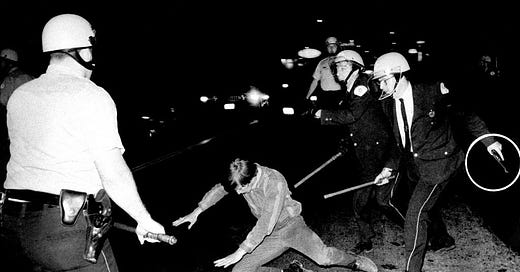


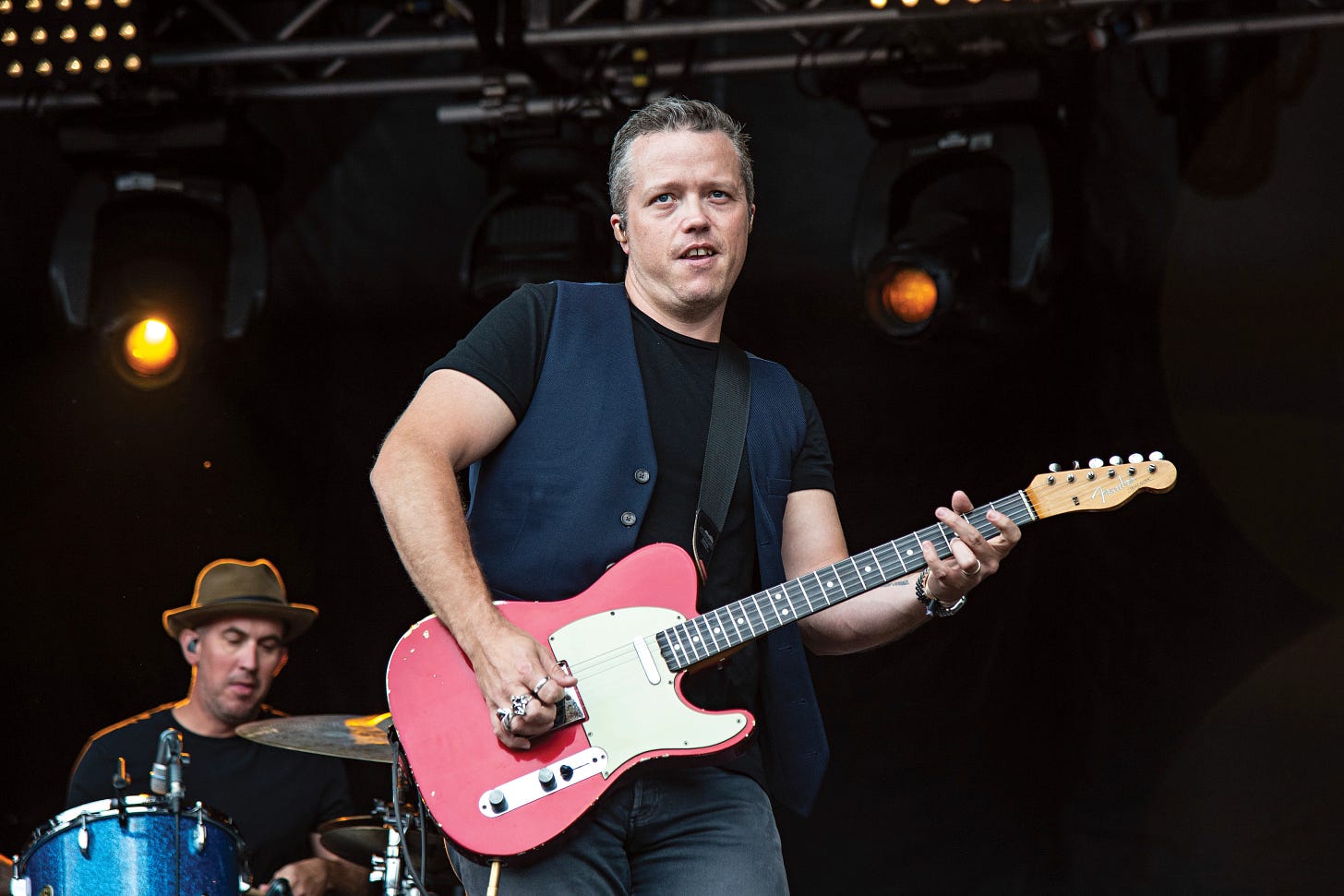
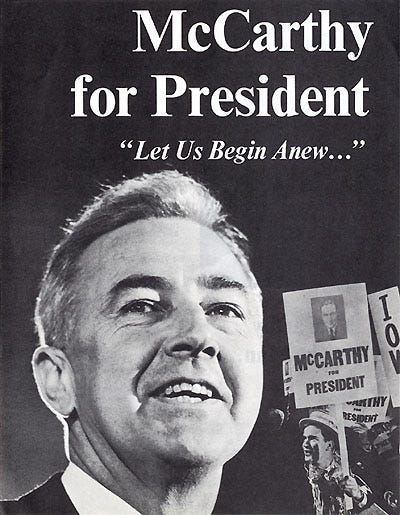
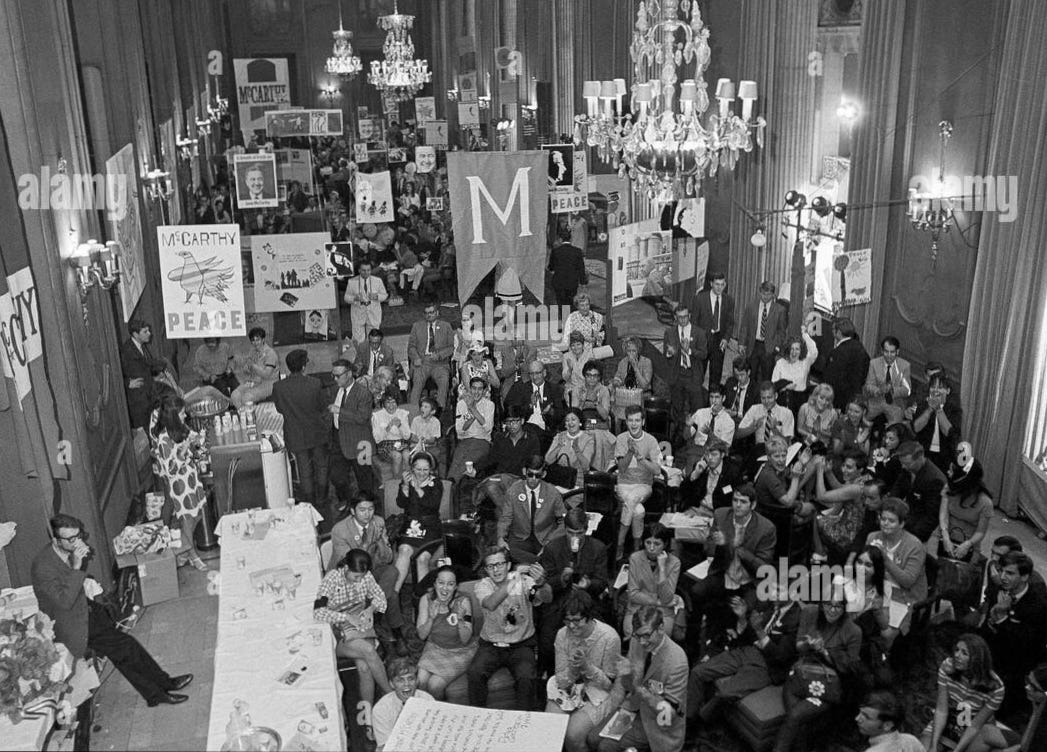

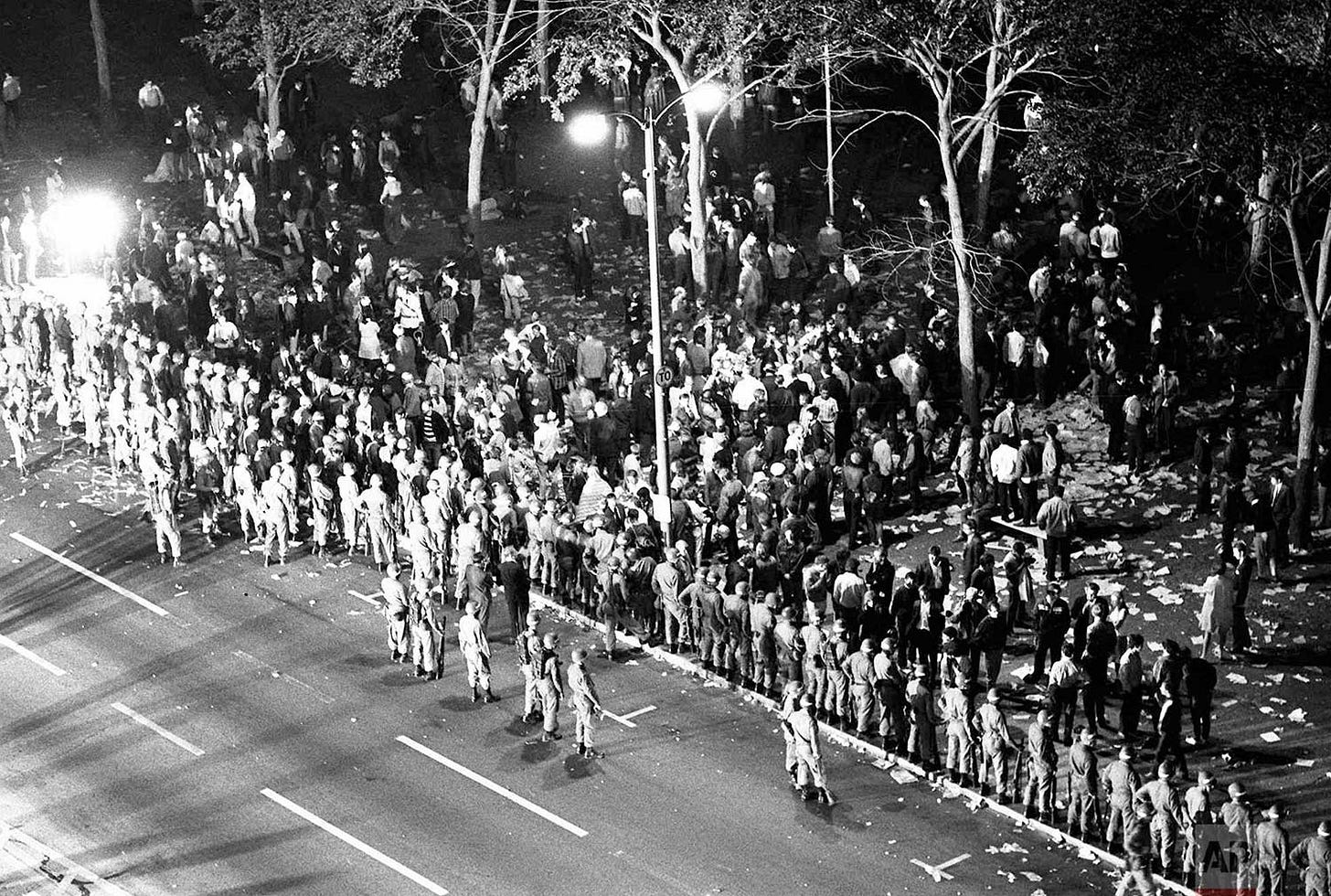
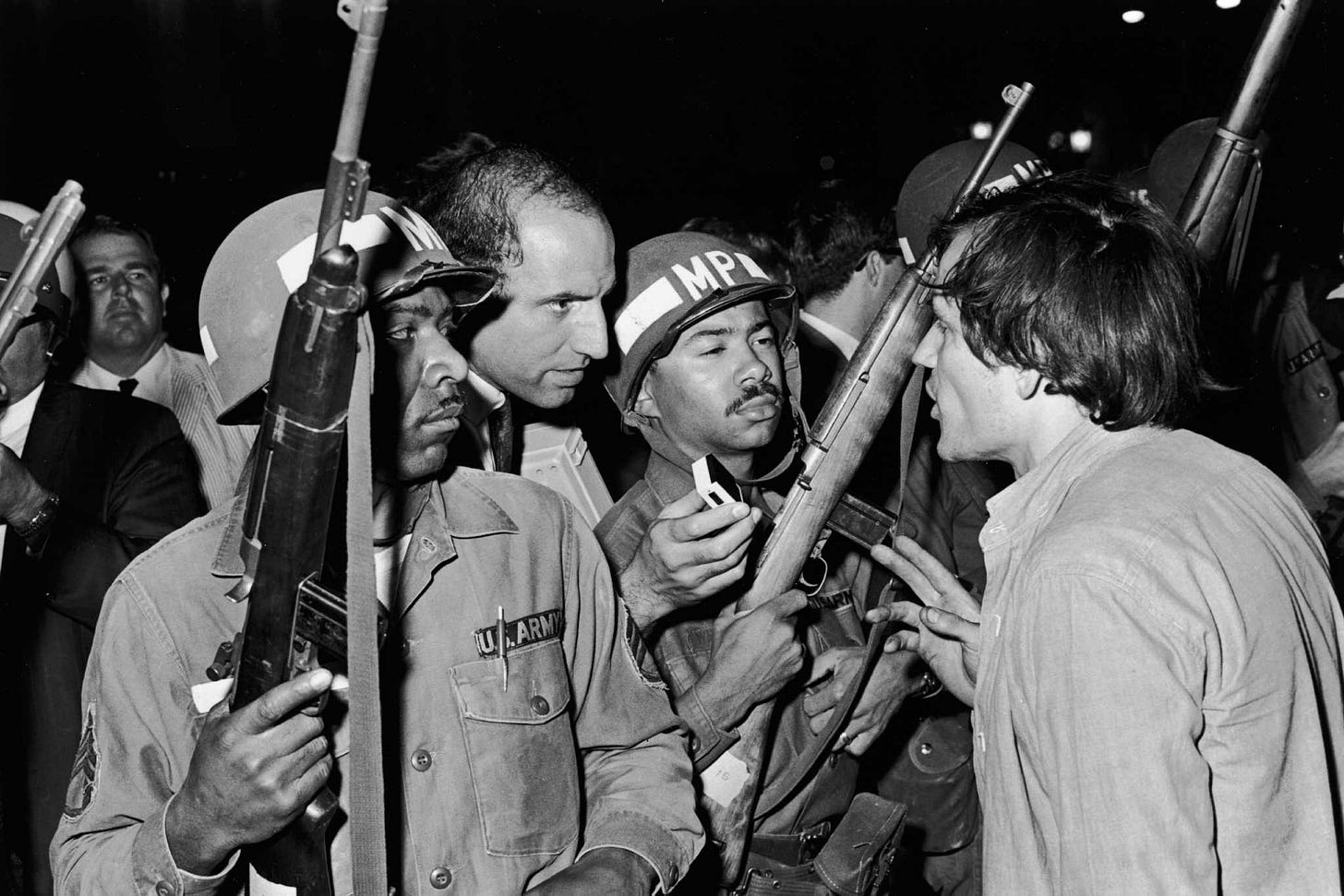
Thinking of Haskell Wechsler's incredible foresight to film the protests in Grant Park for his upcoming film, Medium Cool. I know I have a copy somewhere and will try to find it tomorrow. Remember the opening scene with the videographer on a motorcycle watching an accident victim die?
Can't believe they chose Chicago again. Those songs were the music of my late teens and precursors to the long, strange trip of my life during wars. I even had the joy of tear gas in our apartment my second year at UCSB, where the B of A was burnt down.